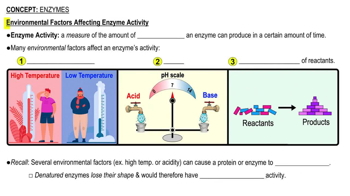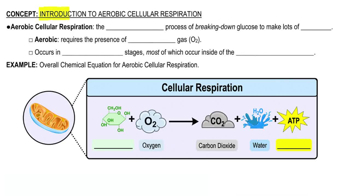Textbook Question
Which of the following occurs during apoptosis? (A) lysis of the cell (B) direct contact between signaling cells (C) fragmentation of the DNA (D) release of proteases outside the cell
2532
views
 Verified step by step guidance
Verified step by step guidance Verified video answer for a similar problem:
Verified video answer for a similar problem:



 3:31m
3:31mMaster Cell Cycle Regulation with a bite sized video explanation from Bruce Bryan
Start learning